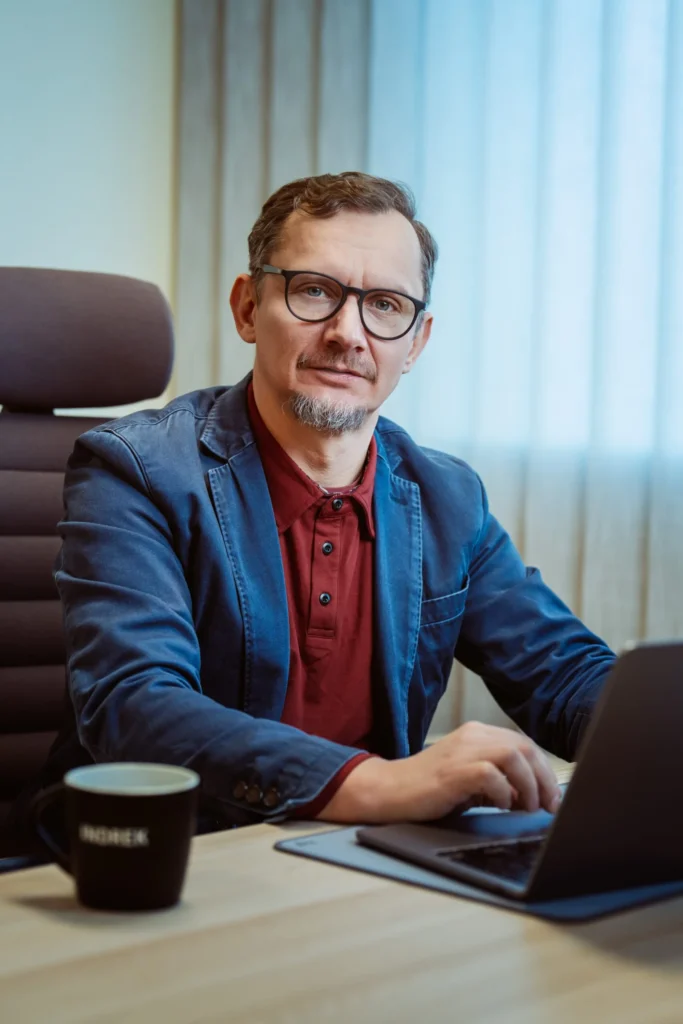Indrek Tulp, head of the Applied Research Center, gave an interview to the University of Tartu, highlighting how his studies have helped him reach his current position.

Where did your career path begin, and why did you choose chemistry?
I have always liked the natural sciences; I value logical thinking, and it seems that it comes easily to me. As a young person, I also really enjoyed solving crosswords. This kind of problem-solving has always been my passion.
I once took part in the precision sciences program at the University of Tartu while still in high school, which could be done by correspondence (now known as the University of Tartu Science School). The teachers noticed that I was good at chemistry and recommended that I participate in the program. I received assignments from the precision sciences school, solved them at home, and sent them back. I really enjoyed doing them, and thanks to the program, I had a spot at the university. I also participated in chemistry Olympiads.
As a young boy, I was naturally interested in chemistry because of the explosions and reactions, but that passion has clearly waned over time. My bachelor’s thesis was more related to environmental chemistry, dealing with the determination of cadmium in drinking water. At that time, I worked as an analyst in the central laboratory of the Health Board. Later, I tried organic chemistry and eventually moved to computational chemistry. Alongside school, I also had to work: as an analyst, (junior) researcher, and briefly as a systems administrator.
What does the applied research center at Metrosert do?
Currently, we are mainly focused on building, staffing, and targeting our activities. However, the goal is to support the business sector in product development through applied research in five areas: hydrogen technology, biorefining, health data, drone technologies, and autonomous vehicles. Our aim is to support Estonian companies and create testing opportunities. The business sector is actually interested in broader research and experiments, but these are quite time and resource-intensive, so cooperation opportunities must be found. For example, the main goal of the university is to provide quality education, so product development is not a priority for them. Today, however, it is desired that universities and companies cooperate more effectively, and we position ourselves between the two. Together, we could ensure the smooth functioning of the technology development lifecycle. We already have very close cooperation with universities in the fields of biorefining and health data, and we aim to expand this further.
I feel we are engaged in interesting development work and solving various problems in an applied way. We have a clear output, and personally, I look forward to the collaborations that lie ahead. Currently, we are building infrastructure and enhancing skills at Metrosert, but I see that we offer quality service and can thus be helpful to the future of Estonia.
Read more here
